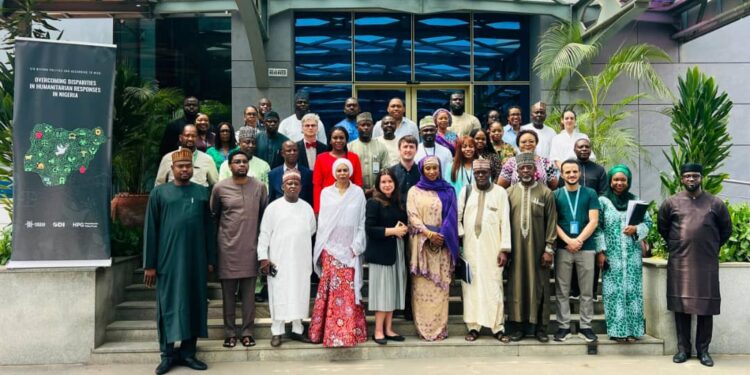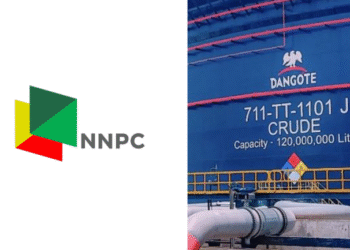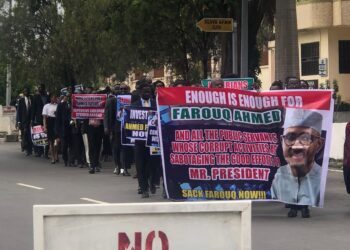NEEM Foundation, a leading crisis response organisation, has advocated for more attention and equitable humanitarian interventions to be given to the North-West region as the North-East has enjoyed.
The call was made in a new research highlighting the disparities in humanitarian response across Nigeria’s Northern Regions carried out by NEEM Foundation in collaboration with the Humanitarian Policy Group at ODI.
The research was presented at an event tagged ” Aid Beyond Politics and according to Need: Overcoming Disparities in Humanitarian Responses in Nigeria ,organised by NEEM Foundation on Friday in Abuja.
Dr Fatima Akilu, Executive Director of NEEM Foundation , said that the research revealed the discrepancies in humanitarian responses between Nigeria’s North-East and North-West regions.
Akilu said this was in spite of facing similar levels of humanitarian need, the North-West remains critically underserved compared to the North-East.
“The study highlights that acute malnutrition in the North-West nearly triples that of the North-East, with 64 per cent of surveyed Local Government Areas .
“This This is reporting ‘serious’ acute malnutrition, compared to 22 per cent in the North-East .’’
Akilu said that these disparities according to the report largely due to differing narratives and perceptions of the conflicts in these regions.
“The North-East’s conflict, framed as an ideologically-driven insurgency, has attracted significant domestic and international humanitarian attention.
“In contrast, the North-West’s crisis is often described as ‘endemic banditry’ or ‘lawlessness,’ leading to its deprioritisation.
“Here, we understood that while the landscape of aid provision in Nigeria is saturated with positive forces that help make the lives of people better, we also recognised that factors internationally and locally often leave certain demographics marginalised and underrepresented.’’
According to Akilu ,NEEM Foundation sought to understand why this happens, whether aid providers are aware of it, how aid beneficiaries feel about it, and how they can improve it.
She said that the research underscored the urgent necessity to address the root causes of crises and to provide equitable, needs-based humanitarian aid across all regions of Nigeria.
Presenting the findings of the report, Mr John Bryant, Research Fellow at the Humanitarian Policy Group and co-author of the new study, said while the North-East has had a major humanitarian response spanning more than a decade, humanitarian efforts in the North-West have been almost entirely absent.
“The stark differences are primarily a consequence of how respective conflicts are understood in both regions by the state and humanitarian actors.
“ The North-East is commonly framed as an ideologically- driven insurgency of Islamic extremism, a compelling narrative of an understandable threat that helped galvanise domestic and international attention, including an international humanitarian response.
“In contrast, the framing of the conflict in the North-West has worked to effectively depoliticise and deprioritise the region’s crisis. State and international actors commonly describe the crisis as one of ‘endemic banditry’ or ‘lawlessness’ drive fundamentally by underdevelopment.
“ Both of these characterisations are incomplete and simplistic, but have shaped the perceptions of donors and other actors that in turn drive discrepancies.’’
Bryant said that the research underscored the need for the global humanitarian system to reassess its prioritisation mechanisms, especially as donor budgets shrink and fewer people were being targeted in humanitarian appeals.
He added that the study emphasised that the solution for the North-West should not mirror the North-East response, instead, it advocates for leveraging local humanitarian capacities and supporting state-level authorities to develop more sustainable and effective interventions.
He said the study recommended that state authorities should be the central actors in delivering protection, services and development interventions for affected people.
Bryant added that the study called on humanitarian actors to uphold humanitarian principles, and assistance must be provided on the basis of need.
He said that lessons could and should be learned from the North-East on the responsibility for facilitating a needs-based and principled humanitarian approach among others.
Ms Meghan Diagle ,Senior Research Fellow at Humanitarian Policy Group, ODI, said that the organization is one of the world’s leading teams working on humanitarian issues.
“ We are dedicated to improving humanitarian policy and practice through a combination of high-quality analysis, dialogue and debate.
“The partnership we had with NEEM Foundation has produced a stronger, more interesting and more relevant piece of research that we could not have produced on our own.’’
Diagle advocated the need for international organisations to support local organisations to address the crisis locally by prioritising the adoption of localised approach to encourage local ownership in addressing the crisis and strengthening response among others.
(NAN)









